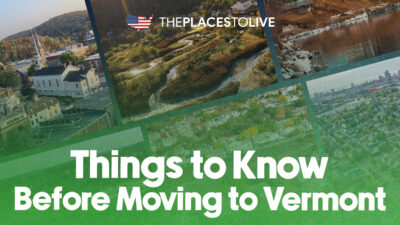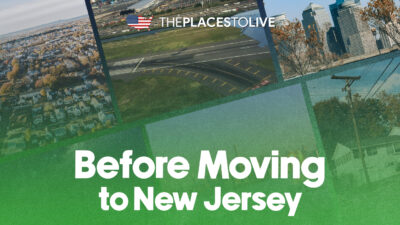Pros and Cons of Living in Maine: A Comprehensive Guide to Maine Lifestyle Drawbacks and Benefits
When considering a move to the northeastern U.S., understanding the pros and cons of living in Maine is essential. This blog post offers a detailed exploration of both the Maine lifestyle drawbacks and the living in Maine benefits to help you make an informed decision. Balancing lifestyle desires with environmental and economic realities is key when choosing a new home. Here, we will unpack Maine’s unique attributes and challenges and evaluate the overall Maine quality of life for potential residents.
Overview of Living in Maine: Geography, Climate, and Quality of Life

Maine is the northernmost state in New England, bordered by the Atlantic Ocean to the southeast and Canada to the northeast and northwest. Its diverse geography includes rocky coastal lowlands, vast, dense forests, and mountainous regions such as Mount Desert Island and Cadillac Mountain—the highest peak on the Atlantic Coast.
The state’s climate is classified as humid continental (Köppen Dfb), featuring warm, humid summers and long, cold winters marked by significant snowfall. Coastal areas experience milder winters and cooler summers due to the Atlantic’s influence, while the northern and inland regions endure harsher winter conditions with temperatures often plunging below zero °F.
The Maine quality of life is a composite of several factors—climate, safety, community, healthcare access, and economic opportunities all combine to shape this experience. Maine’s slower pace, natural beauty, and lower population density appeal particularly to those who appreciate outdoor activities and a quieter living environment.
Given Maine’s cold winters and love for outdoor recreation, residents and newcomers alike benefit from reliable cold-weather gear like Columbia winter jackets and REI camping gear. These products are ideal for embracing Maine’s climate and natural lifestyle safely and comfortably.
Maine Lifestyle Benefits: Natural Beauty, Community, and Affordability
Rich Natural Environment and Outdoor Activities
One of the most celebrated living in Maine benefits is its stunning natural environment. Majestic forests, pristine beaches, hiking trails, and crystal-clear lakes offer endless opportunities for outdoor recreation. Popular activities include hiking, kayaking, fishing, and skiing, with iconic locations such as Acadia National Park and sections of the Appalachian Trail showcasing Maine’s scenic appeal.
This robust access to nature fosters a healthy and active lifestyle while promoting a strong connection to the environment—a major positive when assessing the pros and cons of living in Maine.
Strong Community Feel and Safety
Maine is known for its strong sense of community and notably low crime rates. This creates a safe, family-friendly atmosphere where neighbors often know one another and support is readily available. The tight-knit communities in towns and smaller cities reinforce a welcoming environment, enhancing residents’ quality of life.
Cost of Living Advantages
Compared to larger Northeastern states like New York and Massachusetts, Maine’s cost of living is generally more affordable. Housing is particularly less expensive, which, alongside lower daily costs, makes Maine an attractive option for people seeking a moderate budget without sacrificing quality.
To enhance home comfort amid cold winters, home insulation kits are highly recommended for Maine residents, helping trap heat effectively. Additionally, electric wood stoves provide efficient supplementary heating, while smart thermostats such as Nest improve energy use by optimizing heating schedules according to daily routines.
Together, these benefits contribute significantly to Maine’s overall quality of life, making the state an appealing choice for many.
Maine Lifestyle Drawbacks: Weather, Amenities, and Job Market Challenges

Harsh Winters and Weather Impact
Among the most significant Maine lifestyle drawbacks are the long, cold winters, which bring heavy snowfall ranging from 50 to 110 inches annually depending on the location. Inland and northern regions experience frigid temperatures frequently falling below zero °F.
These extreme winter conditions affect everyday life—from challenging morning commutes and snow removal to increased home maintenance and heating demands. Winter storms and ice can further complicate transportation.
Residents often find practical solutions with electric blankets, heated rugs, and effective snow shovels to improve indoor warmth and outdoor safety, ensuring winter becomes manageable and less burdensome.
Limited Urban Amenities and Rural Isolation
Maine’s largest city is Portland, which, while vibrant, is small compared to major urban centers. This means opportunities for entertainment, cultural events, and public transportation are more limited than in states with major metro areas.
Rural parts of Maine can feel isolated, with greater travel distances required to access services, shopping, or social activities. This lack of urban infrastructure can be a drawback for individuals who prefer bustling city life or need easy access to a wide range of amenities.
Job Market Constraints
The employment landscape in Maine is focused on traditional sectors such as fishing, forestry, healthcare, education, and tourism. These industries provide stable jobs but the state has fewer opportunities in specialized, corporate, or high-tech fields.
This limited diversity can be a challenge for professionals seeking career advancement or higher-paying roles, underscoring one of the significant Maine lifestyle drawbacks.
Social Scene and Seasonal Isolation
Due to Maine’s smaller population and severe winters, social opportunities, nightlife, and cultural diversity can be limited. Seasonal isolation affects some residents’ social lives, especially newcomers who may find fewer options for entertainment and community engagement during colder months.
Weighing the Maine Pros and Cons
To better understand how Maine’s strong suits balance against its challenges, consider the following comparison of key lifestyle aspects:
| Aspect | Maine Pros (Benefits) | Maine Cons (Drawbacks) |
|---|---|---|
| Natural Environment | Stunning landscapes, year-round outdoor fun | Harsh winters, heavy snowfall |
| Community & Safety | Low crime rates, strong local ties | Rural isolation, limited urban social scenes |
| Cost of Living | Affordable housing and expenses | Some regional cost variation |
| Employment | Steady jobs in fishing, forestry, healthcare | Small job market, fewer corporate/high-tech roles |
| Healthcare & Education | Good access in cities like Portland | Sparse access in remote, rural locations |
| Entertainment | Excellent outdoor recreation | Limited cultural and nightlife variety |
Ultimately, the Maine quality of life depends on your personal preferences. If nature, safety, and affordability are top priorities, Maine shines. However, if you seek diverse urban amenities or a broad job market, some compromises may be necessary.
Maine Quality of Life: Health, Happiness, and Environmental Wellbeing

Quality of life is measured by factors such as health, happiness, income, and environmental conditions. Maine excels in many of these areas, largely due to its natural environment.
Clean air, vast green spaces, and numerous outdoor recreational opportunities foster both physical fitness and mental wellness. Maine consistently ranks well for safety and general wellbeing.
However, economic metrics can temper this picture: median incomes in Maine remain below national averages, reflecting the state’s limited high-paying job opportunities.
Many residents find happiness in Maine’s slower pace of life and deep connection to nature. Still, the challenging weather and constrained employment options can occasionally impact overall satisfaction.
To enhance personal wellness during Maine’s long winters, consider meditation app subscriptions and fitness trackers like Fitbit, which encourage maintaining both mental and physical health indoors.
FAQs: Common Questions on Maine Living
What is the cost of living like in Maine?
Maine generally offers a lower cost of living compared to many Northeastern states, especially in housing and everyday expenses. However, costs can vary by region, with urban areas being slightly more expensive.
How harsh are Maine winters?
Winters in Maine are long and cold, with coastal areas being milder than inland or northern regions. Snowfall ranges between 50 and 110 inches annually, and winter temperatures often drop below zero °F inland.
Are there good job opportunities in Maine?
The job market is strongest in traditional sectors like fishing, forestry, healthcare, education, and tourism. Opportunities in corporate, high-tech, or specialized industries are limited compared to bigger cities.
Is Maine a good place for families?
Yes. Maine offers safe communities, excellent outdoor environments, and quality schools in many areas, making it family-friendly.
How is healthcare access in Maine?
Healthcare services are readily available in cities such as Portland, with quality hospitals and clinics. Rural areas have fewer healthcare facilities, which can limit access.
Conclusion: Making an Informed Decision on Living in Maine
In summary, the pros and cons of living in Maine paint a nuanced picture. On one hand, Maine’s breathtaking natural surroundings, close-knit communities, and affordable living costs offer a compelling lifestyle, especially for outdoor lovers and families.
On the other hand, residents must contend with harsh winters, fewer urban amenities, and a restrained job market — all significant Maine lifestyle drawbacks that shape daily life.
The ultimate impact on Maine quality of life depends heavily on individual priorities and tolerance for these trade-offs. This guide has detailed both living in Maine benefits and challenges to equip you with a balanced perspective.
For those planning a move or adapting to Maine’s environment, practical gear like winter wear (Columbia jackets), home insulation kits, and reliable outdoor equipment (REI camping gear) can make life more comfortable and enjoyable. Embracing these essentials will help you thrive in Maine’s unique climate and lifestyle.
Whether you’re drawn by the state’s natural beauty or mindful of its seasonal hardships, understanding the full spectrum of Maine’s pros and cons is vital for making the best choice about calling this picturesque state home.





